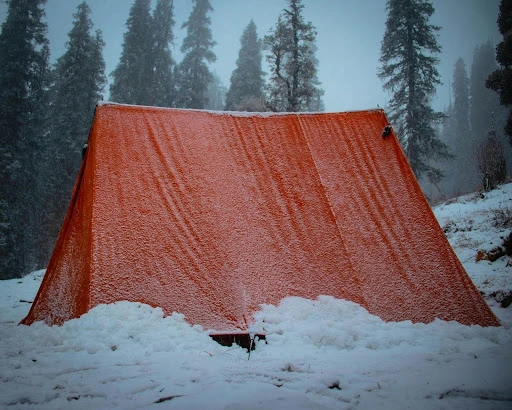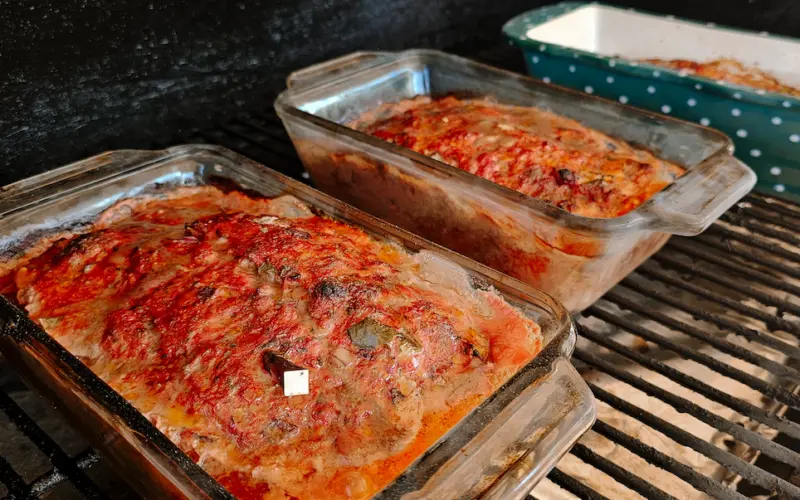When you’re gearing up for a camping trip, it’s easy to focus on the tent itself and completely miss the importance of the tent poles—until winter hits. As someone who loves camping in chilly weather, I know those poles are your tent’s backbone against the cold, wind, and snow.
Picking the right materials can make the difference between your shelter standing tall or the center pole buckling under a heavy snow load. In this article, we’ll look at some of the most common materials used in tent pole construction and how they stand up to the colder weather coming our way.
Table of Contents
Why Does the Material Matter?
In winter, choosing the right tent poles is crucial as not all materials handle the cold equally well. Some materials become brittle in freezing temperatures, compromising their integrity. Strong winds can easily bend or break weaker poles, while the weight of accumulated snow might cause them to collapse.
To keep your shelter stable and reliable, especially in harsh conditions like blizzards or even during a serene, snowy night, your tent poles need to be robust enough to endure these challenges. Luckily, there are solutions for a lot of these issues, you just have to be wise with your tent purchases.
What Are Tent Poles Made Of?
Tent poles come in a variety of designs, with mechanisms that allow them to clip, fit, or snap together. Most poles are hollow inside to accommodate shock cords, which help maintain their structure. Some poles, however, are solid tubes that fit together. The key factor is the material of the tube, which can vary in thickness and diameter.
Here are the materials you will most likely come across:
- Aluminum: Known for its strength and lightweight nature, aluminum is a popular choice for many tents. It’s durable and resists corrosion from snow and ice.
- Fiberglass: Fiberglass is a versatile material composed of fine fibers of glass, commonly used for its flexibility and cost-effectiveness in applications such as tent poles, insulation, and boat hulls.
- Plastic: Lightweight and cheap, plastic poles can be found on budget tents that are designed for occasional use in fair weather.
- Carbon Fiber: Offers exceptional strength and is very lightweight, but comes with a high price tag. Ideal for those prioritizing performance over cost.
- Steel: Extremely durable and perfect for harsh conditions, though its weight makes it less suitable for mobile setups.
Which Tent Pole Is Best?
Theoretically, you can get away with any of the tent poles mentioned above but things can get dicey if the conditions are too intense. Overall, I’d say it’s best to go for something like aluminum or steel as it’ll hold up the best to frigid temperatures with heavy snow loads.
Aluminum: The Usual Choice
Aluminum poles are favored for their durability and resistance to strong winds and heavy snow. While more expensive than fiberglass, their performance in adverse conditions makes them worth the investment for many winter adventurers. Be sure that the diameter of the poles is thick enough that they won’t bend under stress.
Fiberglass: Economical but Limited
Fiberglass poles are budget-friendly and flexible, yet they can become brittle in cold temperatures. This means that they can bend and break if too much pressure is applied, either by force or weather. If you expect harsh winter weather, it’s best to opt for more reliable materials.
Carbon Fiber: Premium Performance
Carbon fiber poles offer unparalleled strength and lightness, making them ideal for those willing to invest in top-tier gear. The material has a high resistance to corrosion and can generally hold up well in colder temperatures. However, their high cost can be a deterrent for budget-conscious campers.
Steel: Heavyweight Durability
Steel is an excellent material for tent poles due to its exceptional durability and strength, which make it ideal for withstanding strong winds and heavy snow. These characteristics are particularly beneficial for winter camping or large family tents that require enhanced stability. You’ll commonly find them used in canvas prospector tents.
While steel poles are heavier compared to other materials, they provide robust support and are often used in situations where portability is not a primary concern.
Final Thoughts
For most situations, Aluminum should do the job fine. The main thing is to balance the weight, strength, and cost aspects. Since tent manufacturers create the poles to go with their tents, looking for one made specifically for winter will give you the best tent poles for cold-weather camping.











